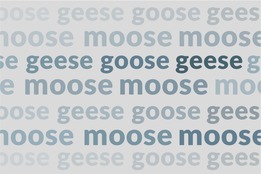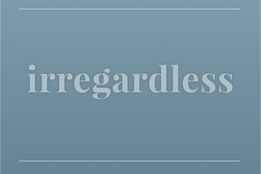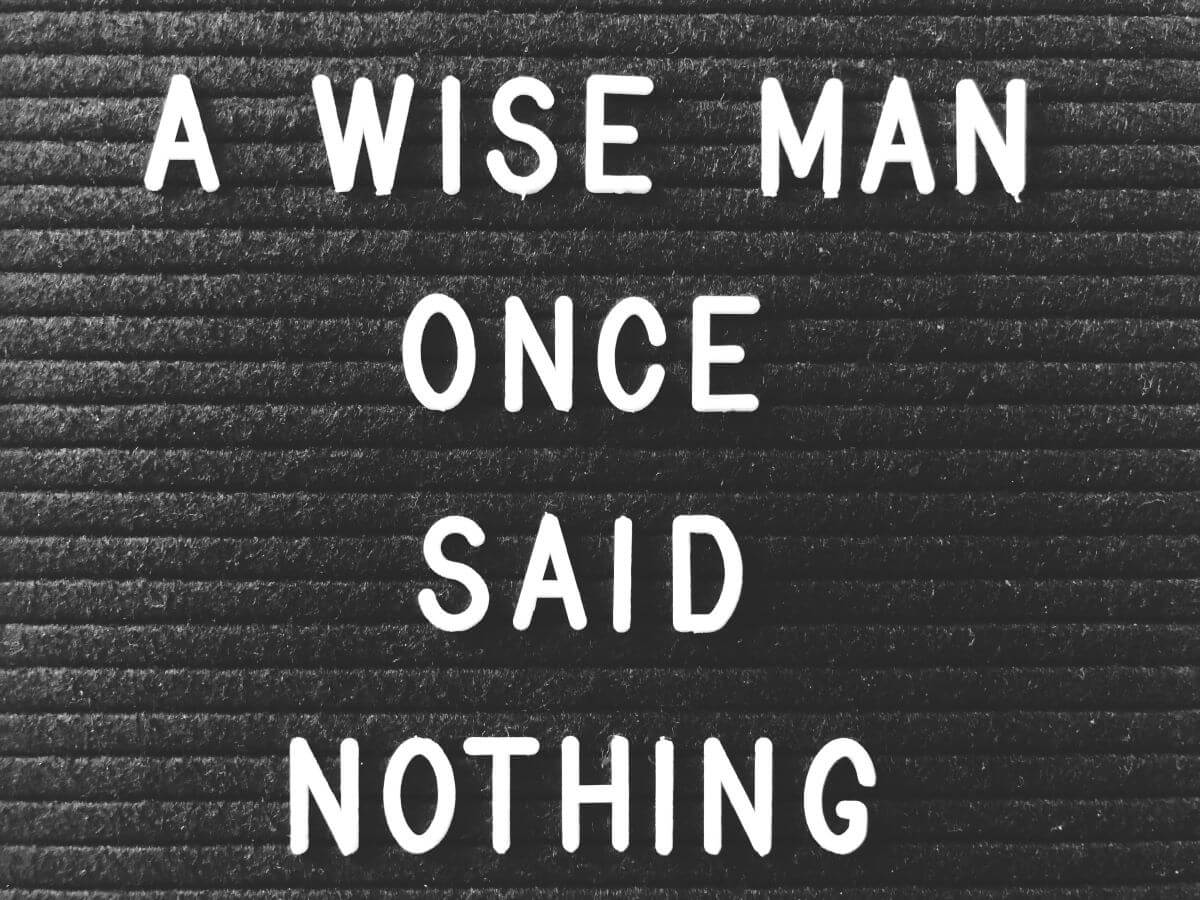One of the words that comes up most commonly in various types of writing, from fiction to academic writing, is the word “said.” Any time a writer is referencing the words or thoughts expressed by another person, whether that be thoughts expressed verbally or in writing, an appropriate way to introduce—or attribute—that person’s thoughts is with the phrase “said.”
But if you’re incorporating a lot of quotations in your writing, you might find yourself repeating the word “said” a lot. Repeating the same phrase in a piece of writing can start to feel monotonous, which is why incorporating synonyms or an oft-used word or phrase can make your writing more interesting and accurate. But here’s some good news: there are tons of other words for “said” out there for you to use!
To help you build a repertoire of words to replace “said,” we’re going to do the following in this article:
- Explain the importance of using word variety and avoiding repetition of the same word in your writing
- Explain when to use “said” and when not to use “said”
- Provide a comprehensive list of alternative words for “said,” organized into categories based on emotion and intention
Ready to check out some synonyms for “said”? Then let’s get going!
To give you the most comprehensive and easy-to-navigate list, we’ve organized our list into two main categories: first, we’re including several lists of other words for “said” by emotion, and second, we’re including several lists of different words for “said” by intention or action. You can decide what meaning you’re trying to express in your writing, and use our lists accordingly!
Happy Words to Use Instead of “Said”
We’re going to kick off our list by giving you a lot of other words for “said” by emotion, starting with synonyms for “said” that convey a happy, joyful, or positive tone.
|
Applauded |
Congratulated |
Prattled |
|
Approved |
Consoled |
Preened |
|
Assured |
Cooed |
Proclaimed |
|
Babbled |
Crowed |
Professed |
|
Bantered |
Encouraged |
Promised |
|
Beamed |
Giggled |
Quipped |
|
Blathered |
Greeted |
Reassured |
|
Blithered |
Hooted |
Reckoned |
|
Boasted |
Jabbered |
Remarked |
|
Bragged |
Jested |
Remembered |
|
Bubbled |
Joked |
Sang |
|
Cheered |
Laughed |
Smiled |
|
Chortled |
Marveled |
Soothed |
|
Chorused |
Nodded |
Spoke |
|
Chuckled |
Offered |
Teased |
|
Comforted |
Piped |
Vowed |
|
Confided |
Praised |
Yakked |
Sad Words to Use Instead of “Said”
Sadness is a common emotion expressed in writing—let’s look at a few synonyms for “said” that convey sadness.
|
Bawled |
Gurgled |
Sobbed |
|
Choked |
Moaned |
Wailed |
|
Coughed |
Sighed |
Wept |
|
Cried |
Sniffed |
Whimpered |
|
Groaned |
Sniffled |
Whined |
Angry Words to Replace “Said”
There are a ton of synonyms for “said” that express anger, and we’ve included several of them for you here.
|
Accused |
Disparaged |
Rejected |
|
Badgered |
Fumed |
Reprimanded |
|
Barked |
Griped |
Reproached |
|
Bellowed |
Groused |
Roared |
|
Berated |
Growled |
Sassed |
|
Boomed |
Grunted |
Scoffed |
|
Censured |
Harassed |
Scolded |
|
Chastised |
Hissed |
Scorned |
|
Chided |
Hollered |
Shouted |
|
Clucked |
Interrupted |
Smirked |
|
Commanded |
Jeered |
Snapped |
|
Complained |
Jibed |
Snarled |
|
Corrected |
Mocked |
Sneered |
|
Criticized |
Muttered |
Snickered |
|
Demanded |
Nagged |
Snorted |
|
Denied |
Ranted |
Stormed |
|
Deried |
Rebuked |
Taunted |
|
Dismissed |
Rebuffed |
Threatened |
Different Words for “Said” That Express Shock or Surprise
When you want to communicate a tone of shock or surprise in your writing, try using these synonyms for “said”!
|
Blurted |
Gawked |
Spouted |
|
Divulged |
Leered |
Started |
|
Exclaimed |
Let slip |
Wondered |
|
Gaped |
Ogled |
|
|
Gasped |
Spilled |
Other Words for “Said” That Express Fear
The last emotion it might be helpful to be able to express accurately and vividly in your writing is fear. Here’s a list of synonyms for “said” that you can use to demonstrate a feeling of fear.
|
Agonized |
Hesitated |
Shrilled |
|
Begged |
Implored |
Shuddered |
|
Beseeched |
Mumbled |
Spluttered |
|
Blanched |
Murmured |
Spooked |
|
Bleated |
Paled |
Sputtered |
|
Brooded |
Panicked |
Squeaked |
|
Cautioned |
Panted |
Stammered |
|
Confessed |
Pleaded |
Started |
|
Cowered |
Quaked |
Tensed |
|
Cringed |
Quavered |
Trembled |
|
Croaked |
Quivered |
Warned |
|
Faltered |
Recoiled |
Whispered |
|
Fretted |
Screamed |
Worried |
|
Gasped |
Shivered |
Yelped |
|
Gulped |
Shrieked |
Words to Replace “Said” That Are Expository
If you’re working with a quote in which the speaker is clarifying information or explaining something, you can try out these words instead of “said”!
|
Added |
Depicted |
Rejoined |
|
Advised |
Elucidated |
Remarked |
|
Answered |
Explained |
Replied |
|
Clarified |
Illuminated |
Responded |
|
Defined |
Illustrated |
Retorted |
|
Delineated |
Portrayed |
Returned |
Other Words for “Said” That Are Argumentative
When you incorporate quotes or dialogue that make an argument, use these synonyms for “said” in your attributions.
|
Advanced |
Claimed |
Insisted |
|
Appealed |
Contended |
Maintained |
|
Argued |
Corroborated |
Posited |
|
Attested |
Countered |
Proposed |
|
Authenticated |
Declared |
Refuted |
|
Bespoke |
Defended |
Substantiated |
|
Certified |
Emphasized |
|
|
Challenged |
Held |
Words to Use Instead of “Said” That Are Critical
If a speaker in a quote or piece of dialogue is forming a critique, incorporate one of these different words for “said” in your attribution.
|
Analyzed |
Critiqued |
Gauged |
|
Appraised |
Estimated |
Interposed |
|
Assayed |
Evaluated |
Interpreted |
|
Assessed |
Examined |
Judged |
|
Concluded |
Explicated |
Reviewed |
|
Considered |
Figured |
Surveyed |
Words to Use Instead of “Said” That Are Implicative
Try using these alternative words for “said” that imply meaning.
|
Adumbrated |
Hinted |
Predicted |
|
Alluded |
Implied |
Professed |
|
Connoted |
Indicated |
Signaled |
|
Foreshadowed |
Insinuated |
Signified |
|
Forewarned |
Intimated |
Stated |
|
Heralded |
Portended |
Suggested |
Words to Replace “Said” That Seek Information
Sometimes you need to include an attribution that shows a speaker is searching for information. These synonyms for “said” can help you establish a tone of inquisitiveness!
|
Adjured |
Inquired |
Questioned |
|
Asked |
Inspected |
Quizzed |
|
Begged |
Interrogated |
Requested |
|
Demanded |
Perused |
Researched |
|
Exhorted |
Pondered |
Scrutinized |
|
Explored |
Probed |
Searched |
|
Implored |
Queried |
Words to Replace “Said” That Reveal Information
Finally, if you need a word other than “said” that reveals information, try out the options in the list below.
|
Accepted |
Conceded |
Owned |
|
Acknowledged |
Confessed |
Recognized |
|
Admitted |
Disclosed |
Reported |
|
Affirmed |
Divulged |
Revealed |
|
Alleged |
Exposed |
Volunteered |
|
Allowed |
Granted |
|
|
Betrayed |
Imparted |
When to Use Different Words for “Said” in Your Writing…And When Not To
In most cases, deciding when to use words other than “said” in your writing is up to your discretion. But there are actually some situations when it’s correct to use “said” exclusively to attribute a piece of dialogue or a quote in your writing. This depends on the type of writing, so we’re going to break down the situations when you should definitely use “said” here!
Journalism
The first situation where you can expect to see writers exclusively using “said” is in any type of writing that relies on AP Style. “AP” stands for “Associated Press,” and this set of style guidelines is the standard for journalistic writing. This includes writing for newspapers, magazines, and public relations in the United States. AP Style provides a lot of rules about grammar, spelling, punctuation, and language use, and using “said” for quote attribution is one of those rules.
Impartiality and objectivity are two values that are extremely important in journalistic writing. Unlike many synonyms for “said,” which reveal a speaker’s feelings, attitude, or intentions, “said” doesn’t try to interpret the feelings, attitude, or intentions of the speaker. “Said” just states factual information: the words in the quote were spoken by a person or group of people. Using “said” allows the journalist to remain impartial and objective about the information, and it also lets readers interpret the meaning of quoted material on their own.
Technical Writing
While not exactly a rule, using “said” is an unspoken expectation for quote attribution in technical writing. Technical writing is a style of writing used in business environments and some scientific fields, like engineering. It’s important for this style of writing to be clear, specific, and, in most cases, concise. In fact, readers of technical writing appreciate a writer’s ability to communicate directly and plainly by using short, direct words. That’s why “said” is the best choice for introducing quotes or paraphrases in technical writing: it’s clear, specific, and concise.
Creative Writing
Creative writing is a third situation that might require you to think strategically about when to use “said.” In creative writing—like fiction, for instance—when and how often to use “said” is pretty much up for debate. There are a lot of synonyms for “said” that you can use to convey the emotions or intentions of a character in dialogue, but you don’t necessarily have to use some flowery synonym for “said” every time you include a piece of dialogue in creative writing. In fact, sometimes it’s okay to strategically omit attributions altogether.
Here’s one example of a way to present dialogue in creative writing that doesn’t overuse attributions:
She crossed her arms angrily. “So you weren’t planning to tell me about your trip to Paris until after you were already gone?”
“I suppose I didn’t see the point.” Paige shook her head. “It’s not like you would’ve let me go if I’d told you ahead of time.”
“That’s really selfish, Paige.”
Even without attributions for every piece of dialogue in the example above, you can still get an idea of how the characters feel and what their intentions are through the dialogue beats (“She crossed her arms angrily,” and, “Paige shook her head”). Alternatively, dialogue attributions in creative writing are another place where word variety is important. Your attributions are a great way for you to add emotion and imagery to your work. That means sometimes you might simply use “said,” sometimes you might use a more expressive synonym for “said,” and other times you might forego attributions altogether.
Academic Writing
One final writing situation where you’ll find yourself needing to make decisions about when to use “said” is academic, research-based writing. In academic writing, it’s important to be clear about who you are quoting and to provide adequate context for the quote you include. For example, if the scholar you’re quoting is making an argument in the quote you include, it would be more accurate to say, “Dr. Garcia argued” or “Dr. Garcia claimed,” instead of “Dr. Garcia said.” Using a quote attribution that gives your reader a clearer sense of the speaker or writer’s purpose and tone.
3 Reasons Why Word Variety Is Important in Writing
Word variety is important to any type of writing for three main reasons: using a variety of words can make your writing more engaging, more accurate, and more expressive.
First, using a variety of words can make your writing more engaging and interesting for the people who are reading it. In some types of writing, like poetry, repetition is used as a strategic stylistic device. In lots of cases, though, writers repeat the same word because they don’t know its synonyms. After a while, readers might feel a bit exhausted by repetitiveness in a piece of writing. That’s one reason why knowing and using synonyms for commonly repeated words is so important!
Second, word variety can make your writing more accurate. For example, while “said” is always going to accurately describe a piece of dialogue or a quote from an outside source, there are words to use instead of “said” that can reveal the intention behind dialogue or the information conveyed in a quote.
Let’s say you incorporate a quote where the author is disagreeing with a point made by a scholar. Sure, you could introduce that quote with, “Dr. Smith said.” But you could be more accurate by introducing the quote with a word that indicates that the quote is going to express disagreement, like, “Dr. Smith countered” or “Dr. Smith responded.”
Finally, your writing is expressive and vivid when you avoid repetition. When your word choice reflects the emotions or tone expressed by a quote or piece of dialogue that you include in your writing, your readers can get a better sense of your intended meaning. Using synonyms for “said” to create tone and imagery in your writing can help readers better understand your position and make them more willing to buy into your ideas.
What’s Next?
If you’re studying for the verbal portion of your SAT or ACT, we’ve got you covered. Here are our expert guides to the verbal portions of the SAT and ACT, and we even have tips and tricks to help you tackle the essay sections! These are just a few of the tons (and tons!) of resources we have, so be sure to check out our blog for more information.
This cheat sheet for ways to say “said” can be really helpful if you’re starting to write your college admissions essays. Learn how to start your essay off perfectly, and make sure you know the biggest mistakes you should avoid, too.
If you’re using this guide to help you write creatively, you might be a great fit for a creative writing degree! Here’s a guide to the best creative writing colleges and programs in the United States.
Have friends who also need help with test prep? Share this article!
About the Author
Ashley Sufflé Robinson has a Ph.D. in 19th Century English Literature. As a content writer for PrepScholar, Ashley is passionate about giving college-bound students the in-depth information they need to get into the school of their dreams.
If you’ve read our previous post on writing dialogue, you’ll know that you shouldn’t be afraid to default to he said, she said, or they said when you’re tagging your dialogue. After all, it’s probably the clearest, least distracting way to indicate who’s saying what. That being said, it can be useful to deploy a specific and powerful dialogue tag every now and again.
👀
Which dialogue tag are YOU?
Find out in just a minute.
To help you find that perfect synonym to inject action and emotion into your dialogue, here are over 270 other words for said:
Neutral/multi-purpose words
|
Acknowledged Added Agreed Announced Articulated Asserted Backtracked Began Blurted Called Commented Communicated Conferred Considered Contended Declared Denoted |
Drawled Elaborated Emitted Ended Enunciated Expounded Expressed Greeted Interjected Mentioned Noted Observed Orated Persisted Predicted Pronounced Quipped |
Recited Reckoned Related Remarked Repeated Replied Responded Shared Slurred Stated Suggested Told Urged Uttered Vocalized Voiced |
Happy/excited words
|
Approved Babbled Beamed Bubbled Chattered Cheered Chimed in Chortled Chuckled Congratulated |
Complimented Crooned Effused Exclaimed Giggled Grinned Gushed Jabbered Joked |
Laughed Praised Rejoiced Sang Smiled Thanked Tittered Trilled Yammered |
Sad/upset words
|
Agonized Apologized Bawled Blubbered Cried Fretted |
Grieved Groaned Lamented Mewled Moaned Mumbled |
Sobbed Sighed Sniffled Sniveled Wailed Wept |
Angry words
|
Accused Choked Badgered Barked Bellowed Chastised Cursed Demanded Exploded Fumed |
Glowered Growled Hissed Insulted Raged Ranted Reprimanded Roared Scolded |
Screamed Screeched Snarled Spat Shouted Swore Thundered Vociferated Yelled |
Annoyed words
|
Bleated Complained Condemned Criticized Exhaled Groused |
Grumbled Grunted Heaved Insisted Mocked Rasped |
Rejoined Retorted Scoffed Smirked Snapped Whined |
Frightened/pained words
|
Coughed Cautioned Gulped Howled Keened Panted Prayed |
Quavered Screamed Shrieked Shuddered Squalled Squealed Trembled |
Wailed Warbled Whimpered Yelped Yowled Warned |
Prideful words
|
Advertised Bloviated Boasted Boomed Bossed Bragged Broadcasted |
Crowed Exhorted Dictated Gloated Moralized Ordered |
Prattled Preached Sermonized Snorted Swaggered Trumpeted |
FREE COURSE
How to Write Believable Dialogue
Master the art of dialogue in 10 five-minute lessons.
Words to express uncertainty
|
Breathed Doubted Faltered Hesitated Lilted Mumbled |
Murmured Muttered Shrugged Squeaked Stammered |
Stuttered Swallowed Trailed off Vacillated Whispered |
Words that make fun
|
Derided Jeered Heckled Lampooned Mocked |
Mimicked Parodied Ridiculed Satirized Scorned |
Spoofed Sneered Snickered Taunted Teased |
Words that ask a question
|
Asked Begged Challenged Contemplated Guessed Hinted Hypothesized Implied Inquired |
Interrogated Invited Mouthed Mused Pleaded Pondered Probed Proposed Puzzled |
Repeated Requested Requisitioned Queried Questioned Quizzed Solicited Speculated Wondered |
Words that give an answer
|
Accepted Advised Affirmed Alleged Answered Assured Avowed Claimed Conceded Concluded Confided Confirmed |
Explained Disclosed Disseminated Divulged Imparted Informed Indicated Maintained Notified Offered Passed on Proffered |
Promised Promulgated Released Reported Revealed Shared Specified Speculated Supposed Testified Transmitted Verified |
Download this ‘greatest hits’ list
For this infographic, we’ve narrowed down the 270 most essential dialogue words for you to know! Simply enter your email below to get it in your inbox within minutes.

FREE RESOURCE
Get our Dialogue Tag Cheatsheet
Upgrade your dialogue with our list of 270 alternatives to “said.”
To see how master writers assemble their dialogue, head over to our final post in this series for some choice examples of dialogue.
Advanced Vocabulary & Collocations
Do you ever notice that we use the word “said” a lot? He said this, she said that, then I said something else. Now there’s nothing wrong with the word “said,” it’s perfectly fine – but the English language has TONS of other options.
Today we’re going to learn 40 alternatives to “said” – and as you will see, each one adds some extra meaning describing the way the person said something, or the reason they spoke.
If you want to expand your vocabulary beyond basic words, then you’ll love my Advanced Vocabulary and Collocations Course. The lessons inside teach you more than 1000 high-level words to help take your English vocabulary from “simple” to “sophisticated.” One student described it as “like a gold mine for my vocabulary.” Click below for more information and to join:
OK, now let’s look at some different words we can use to describe people talking or saying something. We’ll start with some simple ones, and then move on to verbs that have additional meaning.
mention / comment / remark / state
- He said that he used to be a piano teacher.
- He mentioned/commented/remarked/stated that he used to be a piano teacher.
All of these are basically alternatives to “He said.”
Mention is often used when someone just talks briefly about something, they don’t talk in detail about the topic. And state is often used for somewhat more official things, like when someone on trial states that they are innocent of a crime, or a politician states his/her position on an issue.
add / answer / reply / respond / reiterate
These verbs all provide some information about context of a conversation.
If we answer, reply, or respond, then we are saying something in reaction to another person’s question or statement:
- I asked her if she’d ever been to Mexico; she replied that she hadn’t.
To add means to provide additional information, either to your own previously-mentioned point or to someone else’s point:
- Brian described the environmental benefits of the new law, and Melissa added that it would also reduce costs.
- I told the interviewer about my experience as a writer, and then added that I’d also received several awards for my stories.
To reiterate is similar to the verb “to repeat” – it means to say something again; sometimes using the same words and sometimes using different phrasing.
- The supervisor of the factory reiterated that safety was the primary concern.
ramble / rant / go on and on
These verbs mean that someone is talking excessively about a topic:
- My son spent the whole car ride rambling about his favorite superheroes.
- Our boss went on and on about the importance of customer satisfaction.
recite / rattle off
These are used when someone says something (or a list of things) that they have memorized:
- The lawyer recited the text of the law without needing to check her notes.
- He’s a big fan of Star Wars and can rattle off the names of all the movies.
claim / swear / maintain / insist / stress / emphasize
To claim something means to say it is true (sometimes in situations where someone is doubting that) – and to swear that something is true is adding extra force to your claim.
If other people question you or doubt you, then you might maintain or insist that it’s true – keeping to your position over time, or repeatedly. You might stress / emphasize (give extra importance to) some of the best evidence.
insinuate / imply / hint
These words are used for saying things indirectly. For example, if someone is talking about how unhappy he is with his current girlfriend, he might insinuate / imply / hint that he’s planning to break up with her soon. He doesn’t say it specifically, but you can “read between the lines” and understand it.
blurt / reveal / confess / point out
These verbs all have to do with giving information. To blurt or blurt out means to say something spontaneously without really thinking about it beforehand.
To reveal means to say some information that was previously hidden/secret – for example, She revealed that the company knew about the defective products but didn’t do anything.
To confess means to reveal you did something wrong, or say something to which other people might react negatively:
- She confessed that she’d stolen the money.
- He confessed that he didn’t really like his mother’s cooking.
And to point out simply means to say an observation:
- I pointed out that the paint we bought was a slightly different color than the paint already on the walls.
Next we have some words that have to do with the tone or way of talking, as well as the emotion when speaking.
rant / gripe / hiss / snap / retort
To gripe means to complain, and to rant means to talk a lot in an angry way. These verbs are usually followed by “about”:
- She ranted about how unfair it was that she had to work overtime without extra pay.
- Stop griping about all the work you have to do, and just get started!
To hiss means to say something angrily in a soft voice, like an aggressive snake:
- The people sitting in front of us in the movie theater turned around and hissed, “Shut up!”
Snap and retort both mean to say something in a quick and angry way, usually when we’re in a bad mood or in response to someone else’s insult:
- I asked my wife what time dinner would be ready, and she snapped that she hadn’t had time to prepare anything.
- He was making fun of his sister’s job as a house cleaner, and she retorted that his job as an administrative assistant wasn’t exactly glamorous, either.
gush / joke / exclaim
To gush about something means to say lots of extremely good things about it, because you really love it or you think it’s great. When we joke about a topic, we say things about it that are supposed to be funny, not taking it too seriously.
To exclaim means to say something in surprise – this could be a good or bad surprise:
- My boss exclaimed that this was the best work he’d ever seen.
- “Ugh, this hotel room is filthy!” we exclaimed when we arrived.
advise / caution / warn / beg / implore / press / urge
These words are used for saying things to try to influence someone else’s behavior. Advise is used for giving general advice, and caution/warn are used for alerting someone to danger:
- I advised him to send a cover letter with his resume.
- They cautioned/warned me not to go into that bad neighborhood at night.
To beg/implore someone to do something means to ask persistently with a lot of emotion:
- He begged her to forgive him after he cheated on her.
- We implored the teacher to give us more time to finish the project.
To press/urge someone refers to applying strong pressure:
- We need to make a decision – the other company has been pressing us for a response all week.
- I urged her not to give up on her musical career, because she has real talent.
Now you know a great variety of words to describe different ways of talking and reasons for saying something. And if you’d really like to take your vocabulary up to the next level, I’d encourage you to join my Advanced Vocabulary and Collocations Course.
For now, why don’t you try using a few of the words from today’s lesson in your own sentences? That’s a great way to establish them better in your memory. Thanks for watching and I’ll talk to you next time!
Synonyms of said
-
- To save this word, you’ll need to log in.
as in aforementioned
mentioned previously
with said guidebook in hand, we set off to explore the city
Antonyms & Near Antonyms
past tense of say
1
as in told
to express (a thought or emotion) in words
why don’t you just say what’s on your mind?
Antonyms & Near Antonyms
2
as in expressed
to convey in appropriate or telling terms
I’m not quite sure how to say this, but that’s the worst essay I’ve ever read
3
as in recited
to give from memory
say your prayers
Antonyms & Near Antonyms
4
as in assumed
to take as true or as a fact without actual proof
let’s say, for the sake of argument, that this is true
Antonyms & Near Antonyms
Articles Related to said
Thesaurus Entries Near said
Cite this Entry
“Said.” Merriam-Webster.com Thesaurus, Merriam-Webster, https://www.merriam-webster.com/thesaurus/said. Accessed 13 Apr. 2023.
Share
More from Merriam-Webster on said
Love words? Need even more definitions?
Subscribe to America’s largest dictionary and get thousands more definitions and advanced search—ad free!
Merriam-Webster unabridged
Words at Play
-
13 Unusually Long English WordsPulchritudinous and many more
-
Every Letter Is Silent, SometimesWhen each letter can be seen but not heard
-
‘Dunderhead’ and Other ‘Nicer’ Ways to Say StupidAs illustrated by some very smart pups
-
When Were Words First Used?Look up any year to find out
Ask the Editors
-
Weird PluralsOne goose, two geese. One moose, two… moose. Wh…
-
IrregardlessIt is in fact a real word (but that doesn’t mean …
-
Bring vs. TakeBoth words imply motion, but the difference may b…
-
DefenestrationThe fascinating story behind many people’s favori…
Word Games
-
Name That Hat!Time to put on your thinking cap.
Take the quiz
-
Name That FlowerCan you tell the difference between a lilac and a…
Take the quiz
-
True or False?Test your knowledge — and maybe learn something a…
Take the quiz
-
Spelling Bee QuizCan you outdo past winners of the National Spelli…
Take the quiz
10 “Said” Synonyms You Can Use in All Types of Writing
powered by
LanguageTool
Elevate your writing by adding these ten synonyms of “said” to your vocabulary. They can be more accurate and help you avoid repetitiveness throughout your text.
Other Words You Could Use Instead of “Said”
- Knowing other words you can use in place of said can improve your writing because it adds variety and removes repetitiveness.
- Five formal alternatives of said are: announced, commente, explained, replied, and stated.
- Five creative alternatives of said are: whispered/exclaimed, rambled, chimed, bemoaned, and scolded.
Why You Should Know Other Ways To Say “Said”
Whether you’re writing a formal text or creative text, you may notice that said is a frequently used verb. After all, it denotes information that someone has spoken. Said can be found in essays such as explanatory essays, where the writer has to explain what a source has, well, said.
It’s also found in creative writing to commence a dialogue. Below, you’ll find five alternatives that are perfect for formal settings and five alternatives that are great for creative writing.
Five Other Ways To Say “Said” In Formal Writing
1. Announced
As you might have guessed, this alternative is perfect when you are quoting an announcement.
On Thursday, the Coca-Cola Company said they would be changing the color of their Sprite bottles to allow for easier recycling.
↓
On Thursday, the Coca-Cola Company announced they would be changing the color of their Sprite bottles to allow for easier recycling.
Use this said alternative when you are quoting someone’s opinion or response to something.
“It was long overdue,” the principal said after the school was finally remodeled.
↓
“It was long overdue,” the principal commented after the school was finally remodeled.
3. Explained
Use explained when referring to an explanation someone gave.
The lead scientist said that the results were not at all unusual.
↓
The lead scientist explained that the results were not at all unusual.
4. Replied
Replied is used when someone is answering a question or replying to something.
“The animals are all fine,” said the shelter director when asked about the incident.
↓
“The animals are all fine,” replied the shelter director when asked about the incident.
5. Stated
Stated is used exactly as said, but carries a more formal tone.
She said that all airline issues should be resolved in a few months.
↓
She stated that all airline issues should be resolved in a few months.
Five Other Ways To Say “Said” in Creative Writing
These other words for said are perfect within dialogue, to advance a storyline, or for many other creative uses.
1. Whispered/Exclaimed
Whispered and exclaimed are ideal synonyms when you want your readers to visualize the volume of what the speaker is saying.
“I hope he doesn’t find us,” said Frank.
↓
“I hope he doesn’t find us,” whispered Frank.
or
“Aw, man! We always lose at hide-n-seek,” said Frank.
↓
“Aw, man! We always lose at hide-n-seek,” exclaimed Frank.
2. Rambled
Rambled implies that the speaker is talking a lot.
“I couldn’t finish my homework because I was sick, hungry and because my little brother was bugging me,” the little girl said.
↓
“I couldn’t finish my homework because I was sick, hungry and because my little brother was bugging me,” the little girl rambled.
3. Chimed
As a verb, the literal definition of chimed is “to make a musical ringing sound.” This is a good word to use to help your readers visualize a happy or excited speaker.
“It’s the last day of school,” he said happily.
↓
“It’s the last day of school,” he chimed happily.
4. Bemoaned
Bemoaned means “to complain or regard something with displeasure,” so use it when you want to display that someone is sad or upset.
“I can’t believe Rufus ran away,” she said.
↓
“I can’t believe Rufus ran away,” she bemoaned.
5. Scolded
Use scolded when the speaker is angry and/or wants to influence someone’s behavior.
“You’re grounded for arriving late,” my mom said.
↓
“You’re grounded for arriving late,” my mom scolded.
He Said, She Said, They Said
💡 Keep in mind that all these examples also work in the present tense.
There are hundreds upon hundreds of different words you can use in place of said. Remember to keep the context in mind when choosing an alternative. Another tip to keep in mind that will help strengthen your writing is to make sure your text is free from spelling and grammar errors. Not only can LanguageTool provide accurate synonyms, but it can check for all types of mistakes in more than twenty languages.
Unleash the Professional Writer in You With LanguageTool
Go well beyond grammar and spell checking. Impress with clear, precise, and stylistically flawless writing instead.
Get started for free
We Value Your Feedback
We’ve made a mistake, forgotten about an important detail, or haven’t managed to get the point across? Let’s help each other to perfect our writing.

















